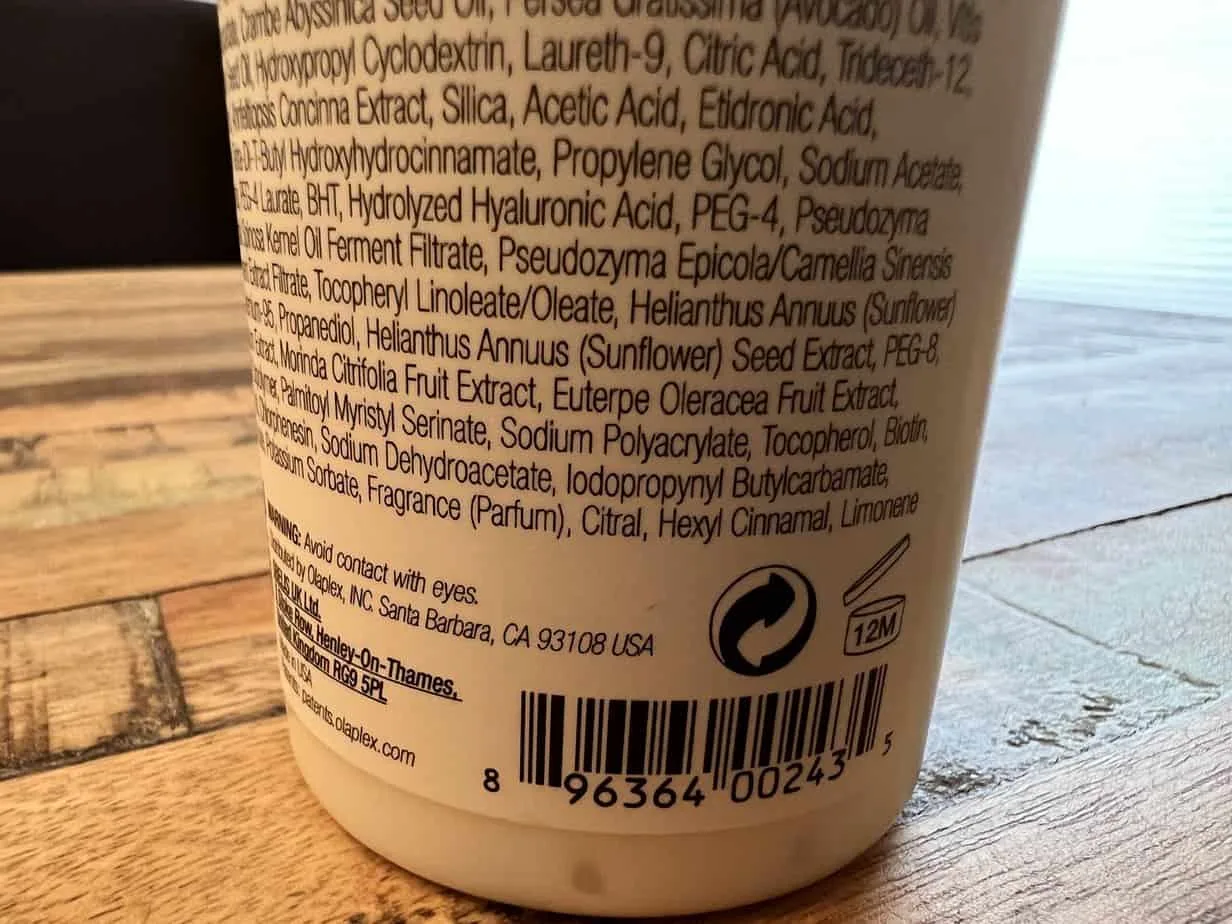
It can be all too easy to overlook conditioner. We all know why shampoo is essential, and hair dye can be a game-changer when appropriately used for those looking to add fresh color options to their hair.
Sometimes conditioner doesn’t stand out to the average person the same way that these other hair care products do in terms of expiration dates (e.g., an expired shampoo bottle).
However, those deep into the world of hair care know exactly how important conditioners are – and likewise understand the importance of using them while they’re still good to achieve maximum effectiveness.
Whether you’re using a shampoo and conditioner, dye, bleach, or another type of beauty product, using a beauty product beyond its expiration date isn’t recommended.
To determine the expiration date, we recommend that you start by looking at your conditioner’s bottle. You may have to check the back of the bottle and the bottom of the bottle to determine if you’re potentially using an expired product.
Do you notice an expiration date (expiry date) on the bottle, label, or packaging? If you do find an expiry date, you may see the date listed as “12M” or “24M.”
These markings represent 12 months (12M) and 24 months (24M), meaning that you should use the products within this stated timeframe.
Does conditioner expire? If so, why does that happen, and what can you do to extend the shelf life? Finally, will using expired conditioners lead to any hair problems? We answer these questions and many more within this article.
Table of Contents
Does Conditioner Expire?
Conditioners commonly last for 12, 18, or 24 months, depending on the product’s formulation. The shelf life of a hair conditioner that’s not opened is as long as three years. Unopened conditioners have a long shelf life; however, opening the product usually causes the expiration date to accelerate.
We recommend using hair products quickly once they’ve been opened, so keeping a conditioner beyond 12 months isn’t recommended.

Unfortunately, the Federal Drug Administration (FDA) doesn’t require manufacturers to include expiration dates on all beauty products. So, sometimes it can be tricky to determine if a product is safe to use.
With that in mind, let’s take a closer look at how conditioners can go bad, how you can tell if your conditioner has expired, and what you can do to preserve the product for as long as possible.
Can Hair Conditioner Go Bad?
Yes, hair conditioners can go bad over time. Like most personal care products, hair conditioners have a limited shelf life, which is typically indicated on the product packaging with an expiration date or a “period after opening” (PAO) symbol that looks like an opened hair product with a number followed by an “M”. The “M” indicates the number of months until a product goes bad.

Why Does Hair Conditioner Go Bad?
There are many reasons why hair care products, in general, can go bad, not the least of which is that they are simply perishable products. The majority of hair products start going bad the moment you open the bottle.
As a general rule, unopened bottles last longer.
While this is a good rule of thumb, unless the product is clearly labeled with an expiration date, we can’t be 100% sure how long the product will last.
So, assume a shorter shelf life to be safe, and use opened products quickly.
Once you open the bottle, the perishable solution inside is exposed to the air, which can cause a chemical reaction with the product inside and accelerate the spoilage process.
One reason for that is the fact that many shampoos and conditioners contain peroxide. When you open the bottle of conditioner, the peroxide and oxygen in the air interact.
Mere exposure to light can cause problems for your conditioner as well.
Not only can light sometimes interact with these chemicals in its own right, but in general, where there is light, there is heat in a bathroom.
Consider electrical lighting or sunlight streaming in through a window, and that can cause big problems for the consistency of the conditioner.
As demonstrated below, this can lead to the solution separating.
What’s worse, the combination of moisture, light, and heat can create a perfect cesspool for microbes. This is one potential reason why your expired conditioner can start to smell.
We recommend storing your hair products in a cool, dry, dark place. Cool places can include everything from your bathroom cabinet to your refrigerator, depending on the needs of the hair product.
Finally, you’ll want to consider the integrity of the packaging itself. As noted, once you open the bottle, the countdown to its expiration date has not only begun, but the expiration date has also sped up.
However, your conditioner bottle doesn’t have to be opened for this countdown to begin. On the contrary, a conditioner that has seen its packaging become prematurely compromised can go bad in a hurry.
You’ll thus want to be on the lookout for any signs that the packaging has become compromised, including dents or tears in the packaging. Also, did the store keep the product in a cool, dry place?
If not, water droplets can be very damaging and lead to spoilage more quickly.
Finally, while some conditioners and shampoos contain preservatives, DIY homemade recipes and organic products have become more popular lately, and these can spoil quickly if not cared for properly.

How to Tell if Conditioner Is Expired
One of the easiest ways you can tell if your conditioner has gone bad is to check how many months have elapsed since you opened it.
So, what length of time are we talking about?
You should be able to tell from an indicator on the bottle listing a number and “M,” for example, “12M” for conditioners that can stay good for 12 months after they have been opened.
How to Find the Expiration Date on Conditioner Bottles

This number will often be displayed near the UPC, batch code, or lot code. This is the most important thing to consider, but other considerations are below.
A funky smell is one of the clearest indicators that perishable items have gone bad – we say that something we don’t trust “doesn’t pass the smell test” for a reason.
That “smell test” is all too literal when it comes to sniffing out spoiled conditioners.
You don’t want to lather odiferous conditioner into your hair and wear it around all day, so if your bottle smells questionable (i.e., a rancid smell), don’t ask questions; just toss it out immediately.
You’ll also want to pay close attention to the consistency of the liquid as it comes out of the bottle. When the conditioner starts to spoil, it begins to separate, and its consistency starts to become a lot less consistent.
You know what conditioner normally feels like, so if the liquid coming out of your bottle feels different, there’s a good chance it has spoiled. The first time you have reason to believe that the product has gone bad, don’t take any chances and throw it away.
Conditioner that feels more watery or clumpier than normal has a decent chance of having gone bad.
In addition, the package becoming lumpy or swollen can indicate that something has gone wrong.
This can happen as bacteria grows or the consistency of the conditioner sours to such a point that it creates pressure on the packaging and causes it to change shape. Bacterial infections are serious concerns, so please avoid using a product if you suspect that bacteria has formed.
Closely connected with this point is the issue of leaking. Of course, any bottle or package shouldn’t leak, and this is an indication that its integrity is long since lost.
What’s more, if your conditioner has reached the point where it is starting to leak out of the bottle, not only may the packaging be compromised, but there’s a fair chance that the conditioner itself has started to become watery or separated, which, as indicated above, is a very strong indicator that it has spoiled.
Poor performance is another indicator that something has gone wrong with your conditioner.
If you’re applying conditioner and find your hair becoming dryer or less elastic and shiny, it may be an indication that the conditioner’s best days are behind it and the product does not have the moisturizing or nurturing power that it once had.
Finally, conditioners are supposed to soothe and guard against the kind of hair and scalp care conditions that can lead to irritation.
If your scalp becomes irritated or, worse, experiences mild burning or itching, that’s a strong indication that your hair conditioner is destined for the wastebasket. Those with sensitive skin should be especially wary of using expired conditioners.

How to Keep Your Conditioners in Good Condition
As you can probably tell from the earlier sections regarding the danger of exposing your hair conditioner to excessive light and heat, you’ll want to do the opposite and make sure that they are kept in a cool, dark, climate-controlled area.
In addition, you should be careful not to open a bottle of conditioner until you plan on using it to ensure that it retains maximum freshness for the longest possible period of time.
Finally, you should make sure that you handle the bottle carefully and ensure that it does not become dented or cracked.

Why You Should Care About Conditioner
Healthy hair, like a healthy scalp, needs to strike a balance between dryness and moisture.
Too much moisture or grease and your hair can feel oily or become a breeding ground for infestations, but too much dryness can lead to poor nutrition and support for your hair follicles.
Just as it’s important that soil be watered and given extra nutrients so as to provide a strong base from which flowers can grow, so too does your scalp and hair need that, and moisturizing conditioners can provide that in abundance.
Moisturizing conditioners can seal cuticles and cut down on frizz.
In addition, they are typically less harsh than chemical hair care products and can thus provide these nutrients and this extra care without damaging or drying out your hair.
Some conditioners also provide protection against UV rays, which in turn can help guard against your hair’s natural color fading with prolonged exposure to sunlight.
One of the best consequences of conditioners is that all that moisturizing not only hydrates hair but smooths it, which in turn causes fewer tangles and thus makes it easier and less painful to comb.
Add to that conditioner’s ability to add some elasticity and shine, and the impetus to ensure that you use conditioners within their recommended use period becomes clear. The worst-case scenario is using an expired product that leads to hair or scalp issues.
- Does Expired Shampoo Damage Your Hair?
- Does Hair Dye Expire After You Open It?
- Does Mixed Hair Bleach Expire?
- Do Hair Gel Expire?
Be Aware of Expired Shampoo and Conditioner Bottles
For as overlooked as it can sometimes be, shampoos and conditioners are an important part of any hair care routine. That said, when good conditioners go bad, they can lead to massive hair care problems.
In summary, unopened hair care products usually last longer. It’s a good idea to use opened products quickly. If you like to create homemade DIY recipes using natural ingredients, these natural products should be used very quickly.
Since they usually don’t have added preservatives and can be easily subject to bacterial growth, you might also consider storing DIY products in your refrigerator instead of in your bathroom cabinets.
To avoid having to deal with foul-smelling hair, an itchy, irritated scalp, and everything in between, you need to keep a keen eye on your conditioner and not be shy about throwing it away at the first sign of spoilage.
Finally, we’ve written detailed articles on how to determine hair spray, hair bleach, hair color, hair gel, and shampoo expiration dates for your convenience.
